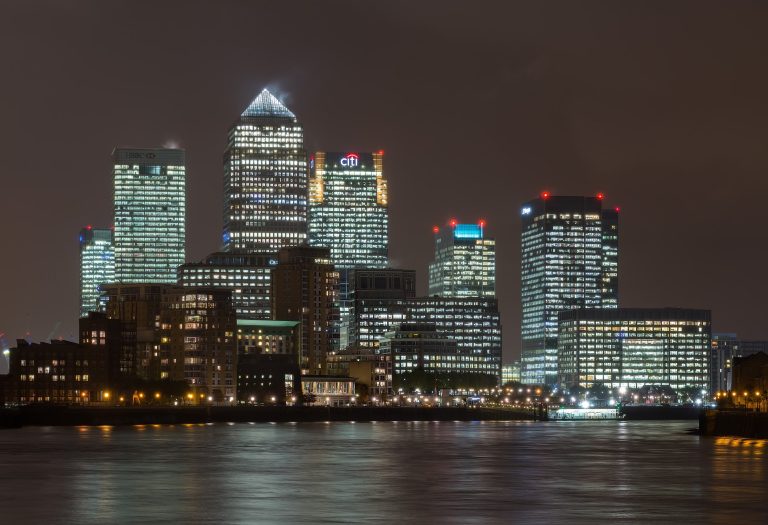By Vision Times UK Staff
On 1 December, Tower Hamlets Council’s Strategic Development Committee met to discuss the Chinese Government’s planning application to build a new embassy on the site of the former Royal Mint Court, London, by Tower Bridge and the Tower of London.
The Chinese government acquired the site through its UK Embassy in 2018 for £255 million, intending to develop the area into a ‘super embassy’ which would have been the largest in Britain at 700,000 sq ft.
Although the planning application seemed set to go ahead according to the Council, the plans were eventually rejected on the night, much to the surprise of some and the relief of many.
The Times reported that this was due to “People power” after it described how “The Chinese Communist Party’s development in London has been halted by a retired engineer’s remarkable resistance.”
Success
You are now signed up for our newsletter
Success
Check your email to complete sign up
Retired engineer David Lake, Chair of the Grace’s Court Residents’ Association, fought for the rights of 100 leaseholder owned properties that were now part of the Chinese Embassy’s site as the People’s Republic of China (PRC) had become the freeholder of St Mary Graces Court. Unfortunately, the residents themselves only found this out last year.
Lake said, “The land is owned by the Chinese government and technically they would be able to enter our homes. What if someone had a flag or poster supporting a political cause they don’t like, could they get it taken down? It’s a bizarre situation, we have not been told our legal status. What if we call the Met Police to one of our homes, but the zone is under Chinese jurisdiction and they are not allowed in? It’s ludicrous. We need clarity,” according to the Evening Standard.
There is no getting away from it. The blurb against a flat in St Mary’s Graces Court listed for sale on Rightmove.co.uk confirmed that “The head lease is owned by the Chinese Embassy which is due to be located behind, regenerating what is already a unique and historic setting.”
Historically St. Mary Graces refers to the last Cistercian foundation in Britain, established in 1350. It was founded by King Edward III (1327-77) on a plot of land just outside the Tower of London, making it unique as the only house of the Order to be built on an urban site.
However, it’s not just the flats that were sold. The Royal Mint Court Residents Association, representing the wider community, states on its website that “in 2018, the People’s Republic of China purchased the freehold land including the commercial offices, listed buildings, archaeological remains of the Abbey and our homes and businesses.”
Now the residents and local community find themselves fighting for their human rights, much like their counterparts in mainland China. A spokesperson for the Council said the plans were rejected due to concerns about ‘resident and tourist safety.’
“A range of concerns were discussed at committee, raised by objectors, ward members and members of the committee. The committee resolved to reject the application due to concerns over the impact on resident and tourist safety, heritage, police resources and the congested nature of the area,’ the spokesperson continued.
The planning application stated, “It can be expected that a major Embassy, such as the new Chinese Embassy, will have very robust protective security arrangements in place.”
Although this referred to the restrictions on vehicles accessing the pavement, the recent attack on a Hong Kong pro-democracy protester at the Manchester Consulate by nine Embassy staff is a reminder that the Chinese Government’s interpretation of ‘protective security’ is very different to the UK’s stance.
Responding to the attack, the Guardian reported that Foreign Office minister Jesse Norman said the government was “extremely concerned” about the incident.
Norman said: “The house will know His Majesty’s government is extremely concerned at the apparent scenes of violence at the consulate of the People’s Republic of China in Manchester.
Protests outside the Chinese Embassy are expected as groups challenge China’s human rights abuses. Naz Islam, chair of the Royal Mint Court Residents Association, said: “We are worried about safety. There have been news of multiple human rights abuses in China. From the Uyghur Muslims, to Hong Kong and in Taiwan and now the protests in Shanghai. I can’t see how there won’t be constant demonstrations outside. And how will that impact us? The Government should step in and delay this application until it can be properly scrutinised,” reported the Evening Standard.
The failed planning application puts the government in a tight spot. Although MPs do challenge single incidents related to China, the housing secretary Michael Gove must now cast his vote and may take the application out of the hands of the local authority. What happens next is the greater task of standing up to China’s Communist Party if the government also rejects the super Embassy.
















